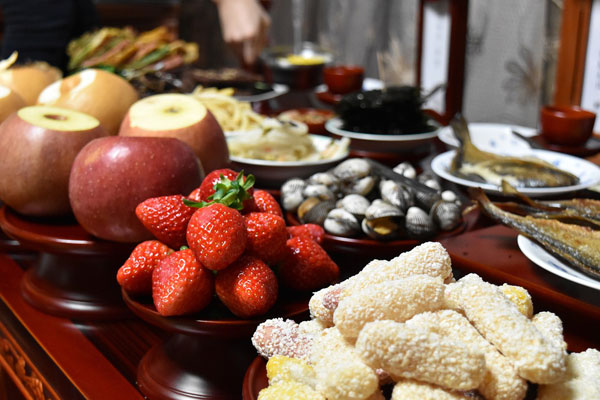
Prior to the Chuseok event, spanning from September 28 to September 30, there has been a recent surge in the prices of Chuseok souvenirs and oil, causing concerns among the public.
Traditionally, Chuseok involves the exchange of agricultural products, such as fruits and meat, as gifts.
However, this year has seen a significant increase in the prices of these agricultural products, primarily due to adverse weather conditions, including heavy rains and heat waves.
On a positive note, the government stated during an emergency economic ministerial meeting on September 22 that “the prices of 20 essential goods remained 6.4% lower than during the Chuseok period of the previous year.”
While this statement is technically accurate, it is worth noting that many people still find the overall cost of Chuseok to be high.
According to the Korea Food & Drug Administration, it still required 6.5% more money than the production year to set up last year's orders.
Although this year's increase has been reduced to 4.9%, it is considered expensive because it follows a substantial price rise from the previous year.
Another significant concern for many people during Chuseok is the cost of fuel, as they use their cars to travel to their hometowns.
Oil prices have continued to rise for the 11th consecutive week.
The average price of gasoline, which was 1,500 won in early July, has now reached 1,776 won, and diesel has also increased from 1,300 won to 1,677 won.
This increase can be attributed to rising international oil prices, and experts predict that domestic oil prices will continue to increase just before Chuseok since they follow global prices with a two-week lag.
In response to these challenges, the government convened an emergency meeting to address the people’s concerns.
They have announced several measures to stabilize prices and boost domestic demand through various policies.
To stabilize the price of key agricultural products, the government plans to significantly increase their supply through contract cultivation.
Specifically, the supply of Chuseok souvenirs will be expanded by a factor of 3.4, while livestock products will see a 1.3-fold increase, and marine products will experience a 1.7-fold increase.
This move aims to ensure a more stable and sufficient availability of these essential items.
Additionally, the government has announced a substantial discount support package totaling 67 billion won.
This represents the largest scale of discount support ever provided by the government.
These discounts will likely be directed towards various goods and services to alleviate the financial burden on the public during the Chuseok period.
The government intends to reduce interest rates as part of its efforts to ease the financial strain on employers and workers.
This interest rate reduction is scheduled to take effect from September through October, offering temporary financial relief to businesses and individuals during this critical time.
Lastly, to stimulate domestic demand, the government has decided to designate a temporary holiday on October 2.
During this period, the government will waive highway tolls for travelers during the Chuseok holidays, further incentivizing domestic travel and commerce.
Additionally, the government has announced plans to double the number of accommodation coupons available, increasing them from 300,000 to 600,000.
Furthermore, they will introduce cardless installment plans during the Chuseok period.
These initiatives are intended to encourage spending and support the tourism and hospitality sectors.
These actions are taken with the overarching goal of ensuring the stability and well-being of the people during the Chuseok period and beyond.

Jeyoon kim
Grade 11
US international school

